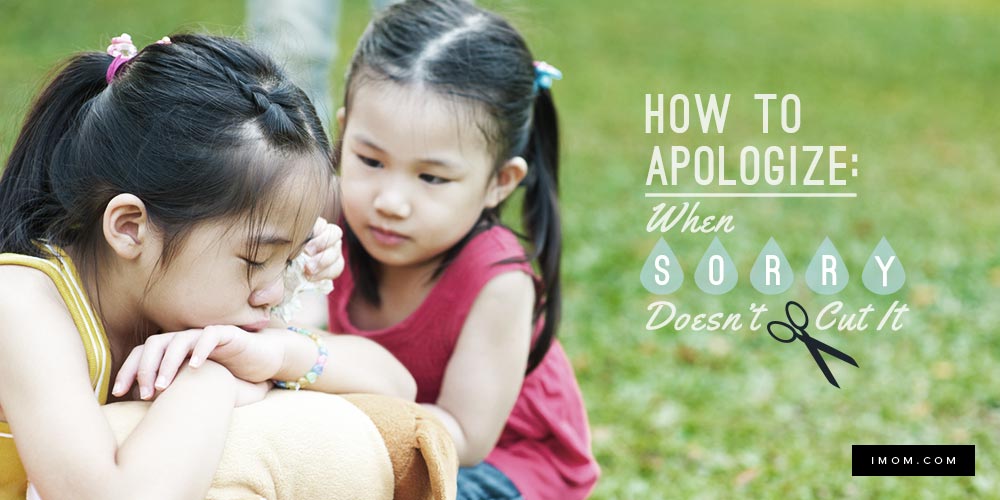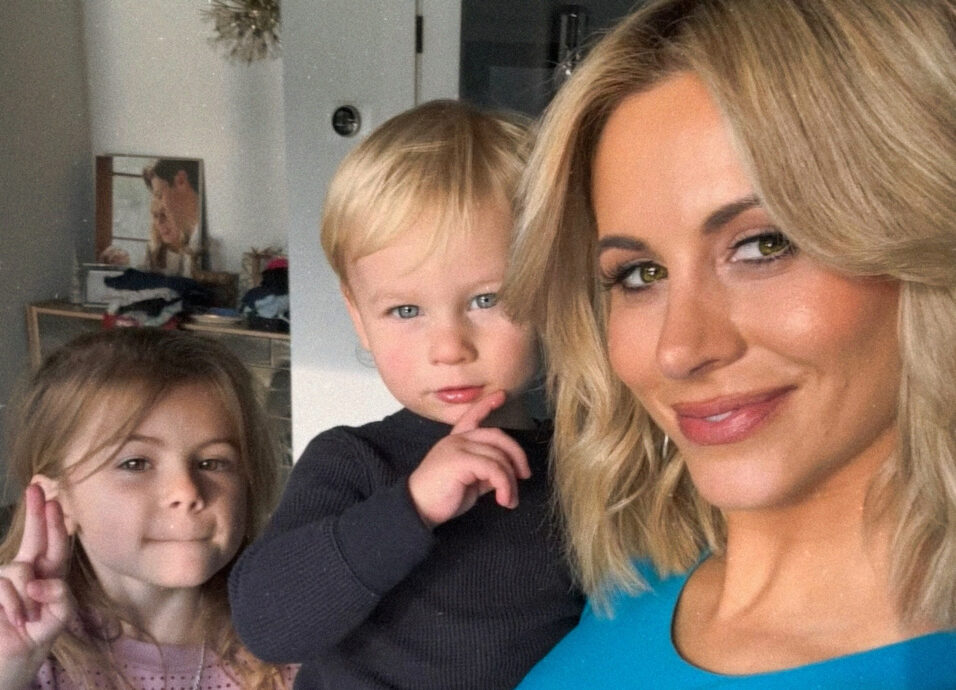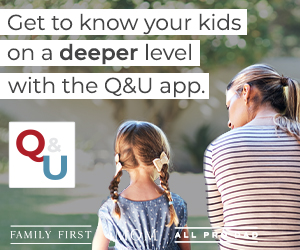Recently, my 10-year-old son was sent to his room to cool off after being very disrespectful. When he returned, my husband apologized for his part in it. When my son didn’t reciprocate, things heated right back up. He ended up apologizing (since it was that or be grounded), but it didn’t feel sincere. I started to wonder if there is a better way.
When our kids are little, they naturally act selfish and bicker, and we make them apologize. But as they get older, we wonder—should I make my child apologize, or let him or her do it on his or her own? Here’s the answer and how to do it correctly.
Yes, you should, but it’s going to look different with an older child.
Forcing vs. Encouraging
First, the purpose of teaching a child to apologize is to create a humble heart— a willingness to admit when he or she is wrong, a desire to change, and a concern for other people’s feelings.
When a 2-year-old boy hits his brother over the head with a block, you can swiftly address the issue (“We don’t hit; Use gentle hands”). Then force him to apologize, and maybe even to ask for forgiveness. These quick corrections are the foundation for learning to apologize later in life.
As a child grows up, it’s time to add sincerity to the process. But it’s not just about the tone of voice. The goal becomes a “real” apology that shows remorse. Therefore, at this age, we encourage an apology instead of forcing it. Here’s how.
Model it.
Show your child what a true and effective apology sounds like by actually doing it when you mess up. Make sure your tone of voice is calm and sincere. Look your kids in the eyes. Be specific about what you are sorry for and ask them to forgive you.
Give them time.
Many kids will dig in their heels during the heat of the moment and refuse to apologize, whether they are truly sorry or not. Even though you really want it to happen now, give it some time. Tell your child how you are feeling. Walk away and give him or her some time to chill out and think it over. This is where our motives shift from our own needs to the needs of the child.
Give them choices.
Sometimes our kids are too embarrassed to give us an apology. Take some of the pressure off by giving them some outside-the-box options, such as a written apology or to chat while taking a drive together so you don’t have to be eyeball to eyeball. Side-by-side discussions often help a child open up much more easily.
Thank them.
When you receive an apology, say thank you. Praise your kids for their courage, humility, and willingness to talk with you about what happened. This will encourage them to do it again next time, as well as let them know you have truly accepted the apology.
What if they never apologize?
What if they never apologize for what they did, or their apology still stinks? Should I make my child apologize then? This is a definite possibility. Our children are independent (dare I say, stubborn?) human beings. And while there is no cut-and-dry answer here, I believe the key is to keep modeling, give it more time, and pray for God to work on your child’s heart.
How do you help your children learn to apologize sincerely?








